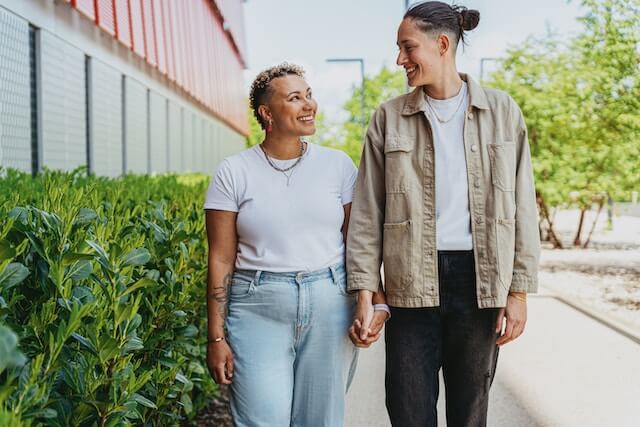Breaking Barriers: The Importance of Culturally Competent Counseling
Mexican food was a big part of my growing up. My dad’s family used to own a Mexican restaurant and his recipes made their way onto all of our holiday tables. When I first went to college and told my white friends what we ate over the holidays—you know things like enchiladas, tamales, and posole—I got the tilted, confused look that normally comes from puzzled golden retrievers.
When I first stepped into my therapist’s office on the campus of Colorado University in Boulder, I noticed quickly I was coming from a very different world than her white and educated background. I had come from a small town where Waste Management leaked into our soil, where my father worked as a pastor of a small, Spanish-speaking congregations, and where my mother cleaned homes for the rich on her hands and knees. For the first time, I sat on her therapy couch as a gay, closeted, partially Latinx, partially Indigenous, and fully lost college student from an alternate reality.
Intersectionality of LGBTQ+ & Ethnic Minority Experiences
In our first session I remember telling her that I was afraid to come out. She asked questions like, “What makes it so hard to tell your parents?”, “What is it about being Latino that makes being feminine so wrong?”, and “Why do you have to stay so close to your family?”
Sadly, as I responded to her answers, I received the very familiar confused, golden-retriever-tilted-head look. I felt so objectified and like most of my time was spent teaching my therapist about my reality and not my challenges.
As a graduate student, I took classes like Cultural Counseling and Cultural Considerations. I felt like those classes were written for white student to better understand minority clients like me. And there I was, the token Latinx, gay boy in a sea of white faces studying how to make a good counselor for my own people from a white perspective. I was so annoyed at how my people were being represented. I had to assert my voice to speak up when lectures were misguided, when textbooks missed the mark, and when I knew better from personal experiences. I had to be a voice for better-informed standards.
Embracing Diversity: Our Commitment to BIPOC Mental Health
Today, at iAmClinic, we continue to hold high standards when it comes to being a safe, equitable, and knowledgeable therapy center for Black and Indigenous people of color (BIPOC), as well as minorities of all types.
Because of what I—and all of our therapists—experience as sexual, gender, and ethnic minorities (just to name a few minority positions among our team), we don’t just approach therapy as trained clinicians, but also as minorities working with other minorities.
And yes, having a diverse staff with a variety of skin tones is important to us. We know that trans and queer people come in all colors, in all languages, and in all shapes. We take it very seriously to ensure that we have therapists on staff who know your background because it is also their background. We want you to be able to speak Spanish with your therapist if that is your preferred language, because being yourself and being comfortable is your right, especially in therapy. I am determined to ensure that all queer or trans BIPOC have that experience at iAmClinic.
We know that having to teach people about the subtle ways our skin, our hair, our accents, and our backgrounds are challenged in society is not only exhausting, it is isolating. That is why we are sure to have therapists who understand your world, leaving no need for you to do the teaching.
iAmClinic is ready, not because we know what the textbooks say, but because we know what discrimination (in big and small ways, in overt and covert forms, and conscious and subconscious microcosms) looks and feels like.
If you’re a BIPOC and find yourself needing therapy, feel free to reach out for a free consultation. I know what it is like to call numerous providers to feel hopeless and misunderstood. At iAmClinic there are BIPOC therapists ready to meet you and help you on your healing journey.


